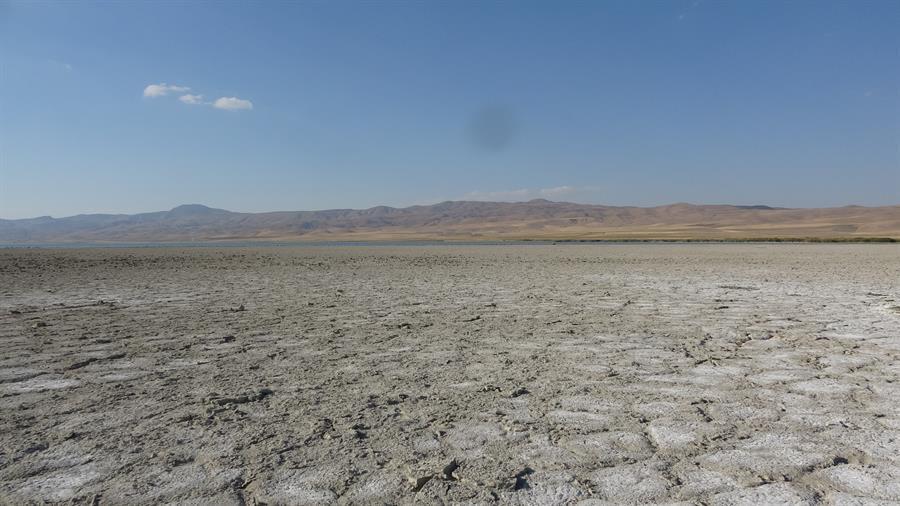Rains in a week may ‘save agricultural production’
ISTANBUL

Though the drought experienced throughout the country since last October has started to threaten agricultural production by “exceeding critical limits one by one,” the possibility of compensation will continue if it rains in a week, sector representatives say.
While the lack of precipitation, which causes insufficient seed development, increases the risk of disease in the plants in some regions, the dam waters have decreased to the lowest levels in recent years in the regions that have not received sufficient precipitation since October.
However, sector representatives estimate that the problems experienced in yield can be limited with the rains in a week supporting the recovery and then the spring rains being sufficient.
“The seed, which remained in a form between dry and wet, has reached the stage of deterioration. We are waiting for the rain this week or there will be trouble,” said Süleyman İskenderoğlu, the head of the chamber of agriculture in the southeastern province of Diyarbarkır’s Yenişehir district.
Rainfalls expected over the next week and in spring have become very important as land controls carried out in the fields planted with cereals do not give promising results, according to Durmuş Üner, the head of the chamber of agriculture in the central Anatolian province of Konya’s Karapınar district.
Separately, the western province of Uşak is among the cities that feel the drought the most, according to the city’s chamber of agriculture head Nafiz Mıdık, warning that serious troubles wait for agricultural production.
In his part, Hasan Şen, the head of the chamber of agriculture in the Keşan district of Edirne, the city that has not had rain since last October, pointed out that high temperatures increase the possibility of disease in plants.
“There is no precipitation, and the water in the dams has decreased. No problems with plant growth so far, but there would be problems if it continues like this,” Mehmet Çelik, the head of a chamber of agriculture in the southern province of Hatay, also stated.
The hazelnut is in bloom due to the hot weather, but there is a possibility that it would burn with frost, said Muammer Aydemir, the head of a chamber of agriculture in the Black Sea region, where hazelnut is an important source of income.
In the same way, the eastern province of Muş is experiencing a period without snow for the first time, said the head of the city’s chamber of agriculture, Hakim Yıldırım, warning that “the problem will be big if there is no rain in the coming days.”
According to the phenological evaluation report of the Turkish Grain Board (TMO), which periodically monitors plant development in the field, the precipitation in the country between Oct. 1, 2022, and Dec. 31, 2022, was 38 percent lower than normal and 29 percent lower compared to the previous year.
The absence of snowfall in all regions does not present a positive picture in terms of grains, the report also noted.
The effect of the situation on the plants is minimal for now, it said, adding that, “However, if the climatic conditions continue in the same way, the plant development will be adversely affected, and therefore it will have an impact on the yield.”
Meanwhile, rainy weather will affect the country, starting from the Marmara and Aegean regions tomorrow and moving towards the interior at the weekend, prominent meteorologist Orhan Şen said. The Turkish State Meteorological Service also warned of torrential rain on the Marmara and Black Sea coasts.
















